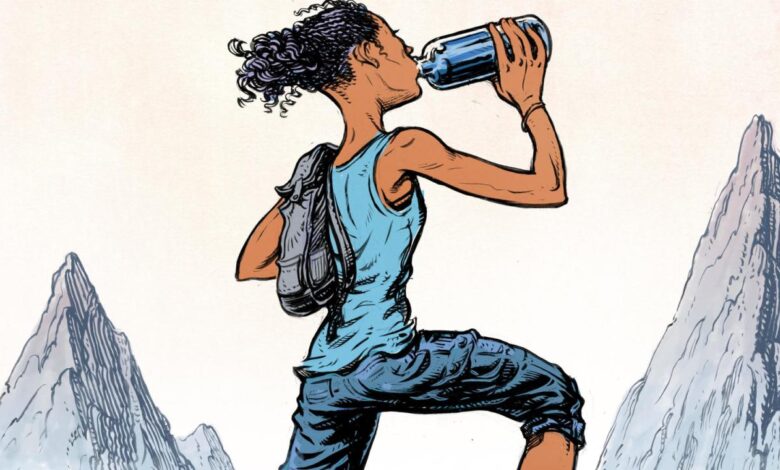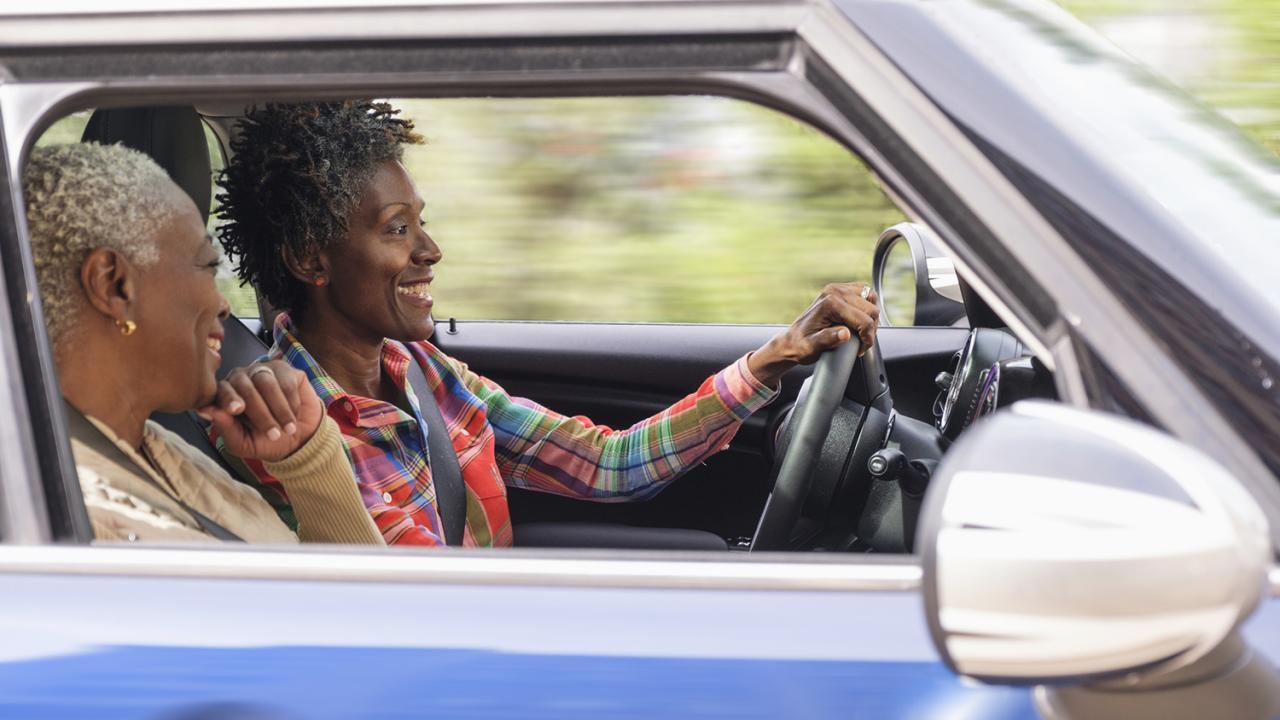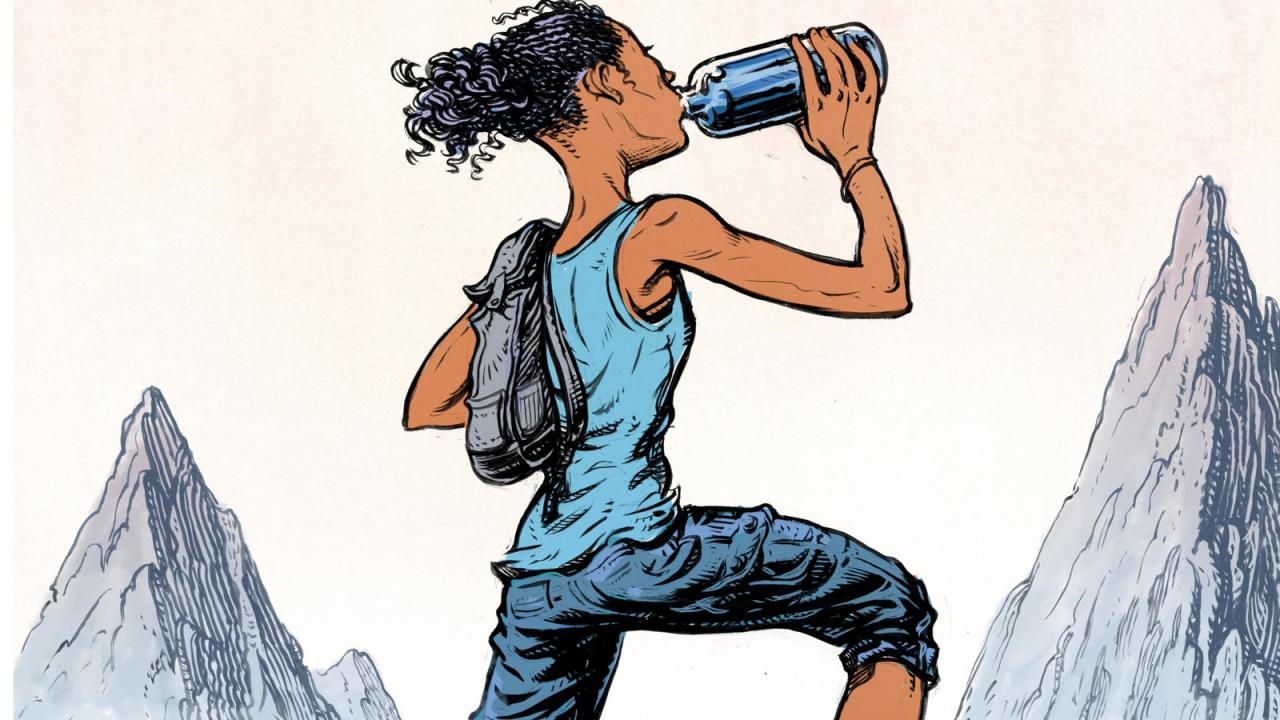
10 Ways to Make Your Next Road Trip Healthier
10 ways to make your next road trip healthier – Road trips are exciting adventures, filled with the promise of new sights and experiences. But, they can also be challenging for our health and well-being. Long hours in the car, limited access to healthy food options, and the temptation to indulge in unhealthy habits can take a toll on our bodies.
However, with a little planning and effort, you can make your next road trip healthier and more enjoyable. This article will guide you through ten practical tips that can help you stay energized, feel good, and make the most of your journey.
From packing smart snacks to prioritizing sleep and embracing mindful moments, we’ll explore strategies to ensure your road trip is as rewarding for your body as it is for your soul. So, buckle up, and let’s embark on a road trip to wellness!
Plan Your Meals Wisely
A road trip is an exciting adventure, but it can also be a test of your willpower when it comes to healthy eating. The temptation of fast food restaurants and convenience store snacks is always present, but with a little planning, you can make sure your next road trip is both enjoyable and nutritious.
Packing Healthy Snacks
Packing healthy snacks is essential for keeping your energy levels up and avoiding unhealthy cravings on the road.
- Fruits and Vegetables:Apples, bananas, oranges, grapes, baby carrots, celery sticks, and bell peppers are all easy to pack and transport. These provide essential vitamins, minerals, and fiber.
- Nuts and Seeds:Almonds, walnuts, cashews, pumpkin seeds, and sunflower seeds are excellent sources of protein, healthy fats, and fiber. They can help keep you feeling full and satisfied between meals.
- Trail Mix:Combine your favorite nuts, seeds, and dried fruit for a tasty and nutritious snack. Just be sure to choose options with minimal added sugar.
- Hard-Boiled Eggs:Hard-boiled eggs are a great source of protein and are easy to pack. They can be a satisfying and filling snack or a light meal.
- Yogurt:Individual yogurt cups are a convenient and healthy option. Choose plain yogurt and add your own fruit or granola for extra flavor.
Preparing Healthy Meals in Advance
Preparing healthy meals in advance can save you time and money on your road trip, and help you avoid unhealthy fast food options.
- Sandwiches:Pack sandwiches with whole-grain bread, lean protein (turkey, chicken, or tofu), and plenty of vegetables.
- Salads:Salads can be a refreshing and healthy meal option. Pack a mason jar salad with layers of greens, vegetables, protein, and dressing.
- Wraps:Wraps are a versatile option that can be filled with various ingredients. Use whole-grain tortillas and fill them with lean protein, vegetables, and hummus or avocado for a healthy and flavorful meal.
- Soup:Pack a thermos of soup for a warm and satisfying meal. Choose a low-sodium soup or make your own at home.
- Fruit Salad:A simple fruit salad is a refreshing and healthy option for a quick meal or snack.
Stay Hydrated

Staying hydrated is crucial for overall health, and this is especially true during long road trips. Dehydration can lead to fatigue, headaches, and even more serious health problems. When you’re behind the wheel, staying hydrated is essential for maintaining focus and alertness.
Planning a road trip? It’s a great way to explore, but long hours in the car can lead to stress and unhealthy habits. To keep your next road trip healthy, focus on planning breaks, packing nutritious snacks, and staying hydrated.
When stress starts to creep in, take a few minutes to practice some mindfulness techniques – check out this helpful article on 8 quick ways to reduce stress right now. Returning to your trip refreshed, you can enjoy the open road and create lasting memories.
The Best Beverages for Hydration
The best beverages for hydration are those that provide electrolytes and fluids.
- Water:Water is the most basic and essential beverage for hydration. It replenishes fluids lost through sweat and keeps your body functioning properly.
- Electrolyte Drinks:Electrolyte drinks, such as sports drinks, can help replenish electrolytes lost through sweating, especially during strenuous activities or hot weather. These drinks can be particularly helpful for long drives, especially if you’re active during stops or in hot climates.
- Fruit-Infused Water:Adding slices of fruit to your water can make it more flavorful and enjoyable, encouraging you to drink more. Fruits like lemon, lime, cucumber, and berries can add a refreshing touch to your water.
Strategies for Ensuring Adequate Water Intake
It’s important to have a plan for staying hydrated throughout your road trip.
- Carry a Reusable Water Bottle:A reusable water bottle is a great way to stay hydrated on the go. Fill it up before you leave and refill it at rest stops or gas stations along the way. You can even keep it in your car’s cup holder for easy access.
- Set Reminders:It’s easy to forget to drink water, especially when you’re focused on driving. Set reminders on your phone or watch to remind you to take a sip every hour or so.
- Avoid Sugary Drinks:Sugary drinks, such as soda and juice, can actually dehydrate you. Stick to water, electrolyte drinks, or fruit-infused water for optimal hydration.
Take Regular Breaks
Road trips are exciting, but long hours behind the wheel can take a toll on your body and mind. Taking regular breaks is crucial for maintaining your health and safety during your journey.
Benefits of Taking Breaks
Taking regular breaks during long drives offers numerous benefits, enhancing your overall well-being and ensuring a safer and more enjoyable trip.
Regular breaks are essential for maintaining focus, reducing fatigue, and preventing accidents.
These breaks allow you to stretch your muscles, rest your eyes, and refresh your mind, ultimately contributing to a more enjoyable and safer road trip.
Break Frequency and Duration
It is generally recommended to take a break every 2-3 hours, especially on long drives. The ideal break duration can vary depending on individual needs and the length of the drive.
A 15-20 minute break is usually sufficient to rejuvenate your body and mind.
Planning a road trip? It’s a great opportunity to get active and make healthier choices. You can opt for walking breaks instead of sitting in the car, pack healthy snacks, and even find ways to incorporate exercise into your itinerary.
But if you’re thinking about standing more to burn calories, you might be wondering does standing burn enough calories to aid weight loss. While it does burn some calories, it’s not a magic solution. To really make a difference, you’ll need to combine standing with other healthy habits, like regular exercise and a balanced diet.
So, get out there and explore, but remember to prioritize your health along the way!
These breaks can be short, involving a quick stretch or a walk around the car, or longer, allowing you to explore nearby attractions or enjoy a meal.
Activities to Engage in During Breaks
Breaks during your road trip are an excellent opportunity to engage in activities that benefit your physical and mental well-being.
Consider stretching, walking, exploring local attractions, or enjoying a meal.
These activities can help you stay energized, reduce stress, and make your journey more memorable.
Incorporate Exercise
Sitting for extended periods during a road trip can lead to stiffness, muscle fatigue, and discomfort. Incorporating exercise into your itinerary can help counteract these effects, improve circulation, and boost your energy levels.
Exercise Options During Breaks
Here are some simple exercises that can be done at rest stops or during breaks:
- Walking:Take a brisk walk around the rest stop or park your car in a spot that requires a short walk to the facilities. Aim for at least 10 minutes of walking every hour or two.
- Jogging:If you’re feeling energetic, try a short jog around the rest stop or park. Even a few minutes of jogging can help get your blood flowing and improve your mood.
- Stretching:Stretching can help loosen up your muscles and improve flexibility. Try some simple stretches like arm circles, leg swings, and torso twists.
Exploring Local Trails
If you’re near a hiking trail or park, take advantage of the opportunity to explore. Hiking is a great way to get some exercise and enjoy the scenery.
- Choose trails based on your fitness level:Look for trails that are appropriate for your physical abilities. Start with shorter, easier trails and gradually work your way up to longer, more challenging ones.
- Bring water and snacks:Stay hydrated and fueled during your hike. Pack plenty of water and healthy snacks to keep your energy levels up.
- Be aware of your surroundings:Pay attention to your surroundings and be aware of any potential hazards, such as wildlife or uneven terrain.
Prioritize Sleep: 10 Ways To Make Your Next Road Trip Healthier
Sleep is crucial for overall health and well-being, especially during long road trips. Getting enough sleep helps you stay alert, focused, and reduces the risk of accidents. Fatigue can impair your judgment and reaction time, making driving dangerous.
Sleep Quality Strategies
Improving sleep quality during a road trip is essential for maintaining energy levels and ensuring a safe journey.
Planning a road trip? Don’t forget about your health! One way to stay on track is to pack healthy snacks. While cauliflower rice has been a popular choice, maybe it’s time to consider the versatility of chickpeas, as explored in this article are chickpeas the new cauliflower.
Chickpeas are packed with protein and fiber, making them a perfect on-the-go snack. Whether you’re looking for a crunchy snack or a hearty meal, chickpeas can be incorporated into a variety of dishes for your next road trip.
- Find Quiet and Comfortable Places to Rest:Look for quiet rest stops, campgrounds, or motels with comfortable beds and amenities that promote relaxation. Avoid noisy areas with heavy traffic or construction.
- Create a Relaxing Sleep Environment:Pack a sleep mask, earplugs, and a comfortable pillow to create a peaceful and dark sleeping environment. Adjust the temperature to a comfortable level, and consider using a white noise machine or app to block out external sounds.
- Limit Caffeine and Alcohol:Avoid consuming caffeine or alcohol close to bedtime, as they can disrupt sleep patterns. Opt for calming beverages like herbal tea or warm milk instead.
- Establish a Regular Sleep Schedule:Try to maintain a consistent sleep schedule throughout your trip, even on weekends. This helps regulate your body’s natural sleep-wake cycle, promoting better sleep quality.
- Take Short Naps:If you feel tired, take a short nap of 20-30 minutes to boost alertness. Avoid long naps, as they can make you feel groggy and disoriented.
Manage Stress
Road trips, while exciting, can be stressful. The combination of unfamiliar environments, traffic, and potential delays can take a toll on your mental well-being. Managing stress is crucial for a healthy and enjoyable journey.
Stress Management Techniques
Stress management techniques can help you navigate the challenges of a road trip.
- Deep breathing exercises can help calm your nerves and lower your heart rate.
- Progressive muscle relaxation involves tensing and releasing different muscle groups to relieve tension.
- Meditation can help you focus on the present moment and reduce stress.
Music and Entertainment
Music can be a powerful tool for stress relief.
- Create a playlist of calming music or upbeat tunes to lift your mood.
- Audiobooks and podcasts can provide entertainment and distraction from stressful situations.
Planning for Delays
Unforeseen delays are inevitable on road trips.
- Build in extra time to your itinerary to account for potential delays.
- Download offline maps and navigation apps to ensure you can find your way even without internet access.
- Have a backup plan in case of unexpected road closures or weather conditions.
Limit Screen Time

While road trips offer a chance to disconnect from the daily grind, excessive screen time can easily creep in, defeating the purpose of a relaxing journey. Constantly staring at screens can lead to eye strain, headaches, and a disconnect from the present moment, diminishing the enjoyment of the trip.
Benefits of Limiting Screen Time
Limiting screen time during your road trip allows you to truly embrace the experience and reap the benefits of disconnecting from technology. By putting down your phone and engaging in alternative activities, you can:
- Reduce Eye Strain and Headaches:Staring at screens for prolonged periods can strain your eyes and lead to headaches. Taking breaks from screens and focusing on activities that don’t involve staring at a bright light can significantly reduce eye strain and headaches.
- Enhance Focus and Concentration:Constant screen use can fragment your attention and make it difficult to focus. By limiting screen time, you can improve your ability to focus on the present moment, allowing you to truly appreciate the scenery and engage in conversations with your travel companions.
- Improve Sleep Quality:The blue light emitted from screens can interfere with your body’s natural sleep-wake cycle. Limiting screen time, especially in the hours before bed, can help you fall asleep faster and enjoy more restful sleep.
- Boost Mood and Reduce Stress:Engaging in activities that promote relaxation and disconnection from technology can significantly improve your mood and reduce stress levels. Instead of scrolling through social media or checking emails, dedicate your time to activities that bring you joy and peace.
Alternative Activities
Instead of spending hours glued to your phone, consider engaging in activities that promote relaxation, connection, and mindful engagement with your surroundings. Here are some ideas:
- Read a Book:Immerse yourself in a captivating story and let your imagination wander. Reading can transport you to different worlds and provide a welcome break from the digital world.
- Play Games:Engage in a game of cards, board games, or travel-themed games. Playing games together can foster laughter, create shared memories, and keep everyone entertained.
- Engage in Conversation:Take advantage of the time spent together to have meaningful conversations with your travel companions. Share stories, discuss ideas, and connect on a deeper level.
- Listen to Music or Podcasts:Enjoy your favorite tunes or delve into informative podcasts. Music can create a relaxing atmosphere, while podcasts can expand your knowledge and spark interesting discussions.
- Observe the Scenery:Pay attention to the world around you. Admire the landscapes, the towns you pass through, and the unique sights along the way. Take time to appreciate the beauty of your surroundings.
- Enjoy Nature:If you have the opportunity, take a break from the car and explore nature. Go for a hike, have a picnic in a park, or simply relax by a lake. Connecting with nature can be incredibly rejuvenating.
Practice Mindfulness
Road trips, while exciting, can often be stressful. The constant driving, navigating, and unpredictable situations can take a toll on your mental well-being. Practicing mindfulness during your journey can help you stay grounded, reduce stress, and enhance your overall experience.
Benefits of Practicing Mindfulness During a Road Trip
Mindfulness is about paying attention to the present moment without judgment. It’s about being fully aware of your thoughts, feelings, and sensations without getting caught up in them. When you practice mindfulness during a road trip, you can:
- Reduce Stress and Anxiety: Mindfulness helps you focus on the present moment, reducing rumination on past events or worries about the future. This can significantly lower stress levels and promote a sense of calm.
- Increase Focus and Concentration: By bringing your attention to the present moment, mindfulness improves your ability to focus and concentrate, making you a safer driver and more attentive to your surroundings.
- Enhance Enjoyment: Mindfulness allows you to appreciate the simple joys of the journey, such as the beauty of the scenery, the sound of the wind, or the feeling of the sun on your skin. It helps you savor the experience and create lasting memories.
- Improve Emotional Regulation: Mindfulness can help you become more aware of your emotions and learn to manage them effectively. This is particularly useful when dealing with unexpected road trip challenges, such as traffic jams or delays.
Mindfulness Techniques for Road Trips
There are many simple mindfulness techniques that can be easily incorporated into your road trip. Here are a few examples:
- Focus on the Present Moment: While driving, pay attention to the sensations of your body, the feeling of the steering wheel in your hands, and the sounds of the engine. Notice the colors and shapes of the passing scenery without judgment.
- Practice Gratitude: Take a few moments to appreciate the things you are grateful for, such as the opportunity to travel, the company of your loved ones, or the beautiful landscapes you are experiencing. This can shift your focus to the positive aspects of the journey.
- Engage in Mindful Breathing Exercises: During rest stops or while waiting in traffic, take a few deep breaths, focusing on the sensation of the air entering and leaving your body. This simple exercise can help calm your mind and reduce stress.
- Mindful Walking: When you stop for a break, take a mindful walk. Notice the texture of the ground beneath your feet, the sounds of nature, and the sights around you. Engage all your senses and be present in the moment.
- Mindful Listening: While driving, listen attentively to the sounds around you. Notice the chirping of birds, the rustling of leaves, or the hum of the engine. This can be a calming and grounding experience.
Creating Moments of Peace and Stillness
Road trips often involve a lot of activity and stimulation. It’s important to create moments of peace and stillness throughout your journey. Here are some suggestions:
- Take Short Breaks: Schedule regular breaks during your drive, even if it’s just for a few minutes. Step out of the car, stretch your legs, and take a few deep breaths. This can help you reset and feel more refreshed.
- Find Quiet Spots: Look for quiet spots along your route where you can park and enjoy a few moments of solitude. Listen to the sounds of nature, meditate, or simply relax and enjoy the peacefulness.
- Practice Mindful Meditation: If you have the time, consider incorporating a short meditation session into your day. Find a quiet spot, close your eyes, and focus on your breath. This can help you calm your mind and reduce stress.
Enjoy the Journey

While focusing on health and wellness is crucial, don’t forget the primary purpose of a road trip: to experience and enjoy the journey itself. Embrace the open road, the unexpected detours, and the moments that create lasting memories. A road trip is more than just reaching your destination; it’s about the adventure along the way.
Embrace Spontaneity and Flexibility
One of the greatest joys of a road trip is the freedom to explore. Don’t be afraid to deviate from your planned route. If you see a sign for a scenic overlook, take it. If you stumble upon a charming town you’ve never heard of, stop and wander around.
These unplanned detours often lead to the most memorable moments.
Create Memories and Savor the Moments, 10 ways to make your next road trip healthier
The best road trips are filled with moments that you’ll cherish for years to come. Take the time to appreciate the beauty of your surroundings. Capture those moments with photos or videos, but don’t let technology take over.
Be present in the moment, savor the experience, and let the memories form naturally.
Final Conclusion
Remember, a healthy road trip is about striking a balance between adventure and self-care. By incorporating these ten tips into your travel plans, you can ensure that your next road trip is not only fun and memorable but also a positive experience for your overall health and well-being.
So, embrace the journey, prioritize your health, and create lasting memories that nourish both your body and mind.

